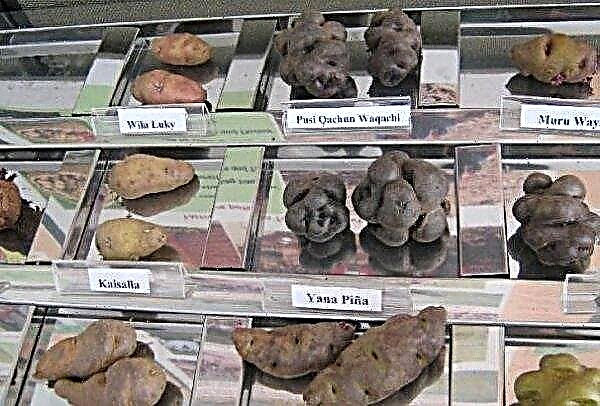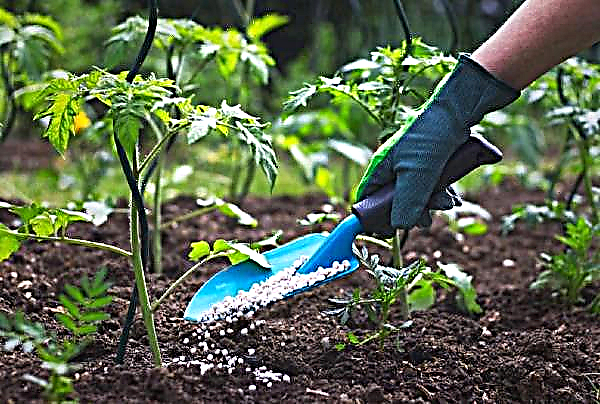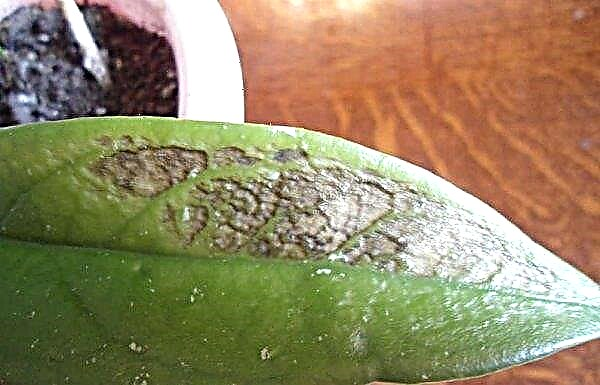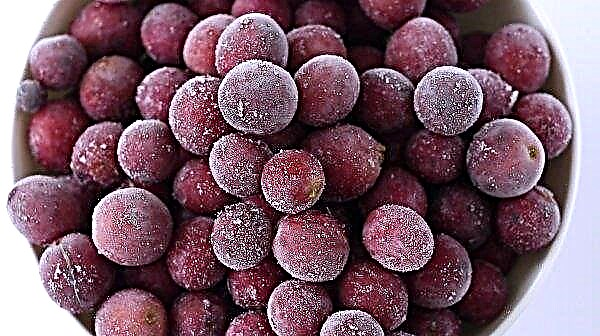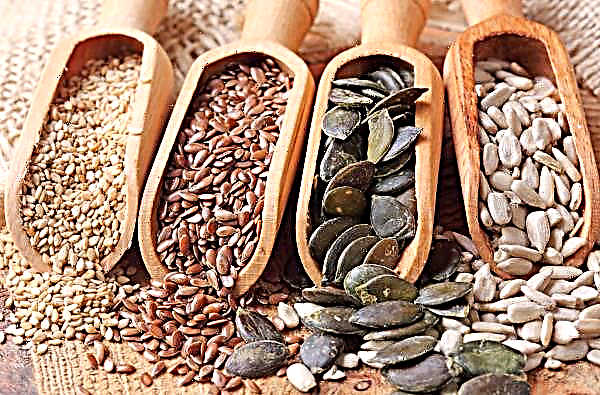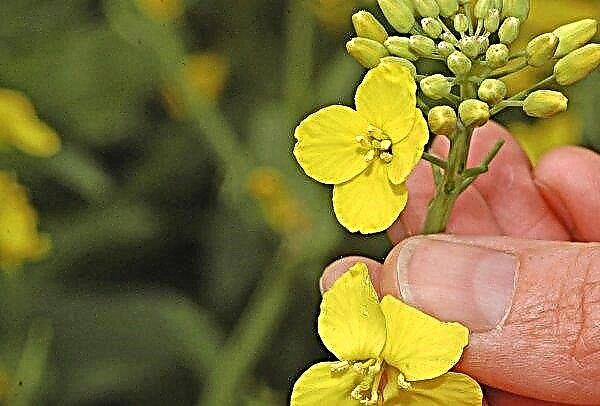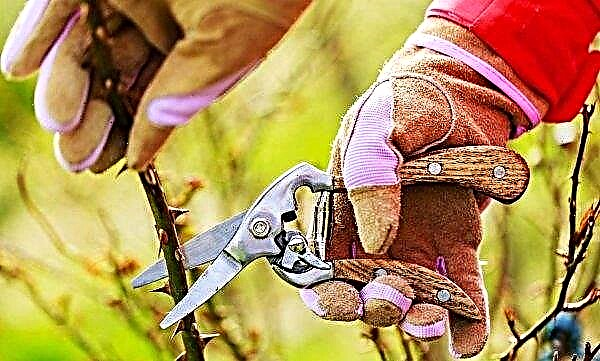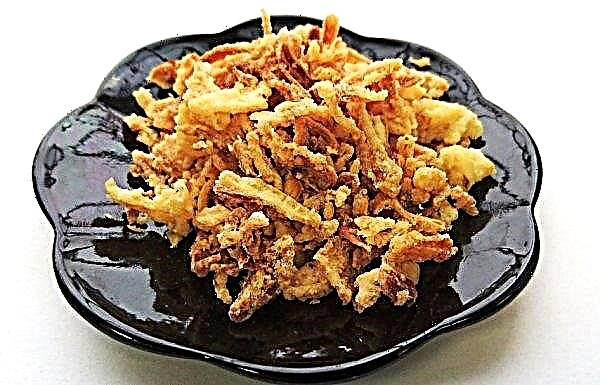Breeding turkeys in homesteads attracts many owners - these birds have a good weight gain in a short time, and their carcasses have the largest mass among all domesticated birds. But turkeys and turkey poults are often exposed to various diseases, with improper treatment often fatal. To avoid such facts, the owners need to be informed in advance what their pets are sick with and what they need to be treated if necessary.
Why turkey poultry
The causes of the disease in turkeys are many, the main ones include:
- birth defects of birds;
- unbalanced and malnutrition;
- unsuitable for quality cultivation living conditions and climate features;
- infection through air, food;
- the ability to get infected from other individuals.

Respiratory diseases
As a result of keeping turkey poultry under adverse conditions of hypothermia, drafts, insufficient ventilation and ventilation, lack of vitamins in their bodies, unbalanced nutrition, stress, chicks can present unexpected surprises to their owners in the form of respiratory diseases.
Runny nose
The most common manifestation of the onset of respiratory tract infection in turkeys is snot. At the same time, sick chicks become a source of infection among other pets.

A runny nose most often manifests itself in these birds between the ages of two to four months. The incubation period lasts from six days to three weeks, the development of the disease occurs in one and a half weeks.
Important!It is often difficult for owners to recognize what started in pets runny nose in the early stages, since snorting with it is no different from the usual sounds made by turkey poults.
Symptoms of an emerging infection that caused a runny nose are:
- birds begin to yawn intensively due to concomitant problems with the throat;
- sneezing appears;
- pets can cough and even wheeze;
- tumors appear on the head and neck, swelling of soft bags containing thickened mucus occurs;
- mucous whitish strings appear when the chick opens its beak;
- eyes begin to stick together in birds due to pus;
- the head becomes edematous, pets cannot always see food, they begin to constantly turn their heads, they feel some helplessness, so weight and physical strength are lost.

Methods for treating a cold in turkey poults:
- place the chicks in a warm place without drafts;
- the use of Farmazin 500, which must be dissolved in water in a proportion of 1 g of the drug per 1 liter of water. The solution must be added to the drink, poured into the sinuses of the birds;
- the introduction into the sinus of antibacterial drugs Furazolidone or Streptomycin;
- prepare an infusion of chamomile and eucalyptus, add a couple of drops of turpentine and in hot form, first covering the dishes with gauze for safety, and put in a cage so that birds can inhale the vapors of the medicinal product;
- solder with a decoction of dill seeds, infusion of violets, strawberries;
- wipe the beak and nostrils with a pen dipped in salt water, after which it is recommended to grease the beak with boron fat;
- in difficult cases, you need to seek the help of a veterinarian to remove mucus with special devices.
Important! At the first signs of a runny nose, treatment should be started as soon as possible, because over time it can develop into sinusitis, and in a quarter of cases of sinusitis, the chicks die.
Turkey sneeze
One of the first signs that turkey poults are ill is often an unexpected sneeze.
Most often, such a manifestation should be followed by a more serious disease of the respiratory system, so you should immediately take measures:
- place birds in a dry and warm place;
- add medicinal infusions and decoctions from the seeds of dill, chamomile, wild strawberry with honey to drink;
- use with food oxytetracycline or chlortetracycline;
- drink water with the addition of Tilanoma.

Mycoplasmosis
Poultry love warmth, a room with a low level of humidity suits them. But just like cold, they do not tolerate heat and high humidity. It is in such unfavorable conditions that pets with low immunity can often develop mycoplasmosis.
The following symptoms have this disease:
- eyes swell, their mucous membranes turn red;
- it becomes noticeable that the birds lose their sight;
- snot appear, eyes begin to watery;
- pets lose weight.
Did you know? The turkey is able to blush with excitement.
Perosis
Due to the lack of manganese poultry in their body, they can develop perosis. With this disease, the ligaments and tendons are relaxed, the joints are displaced, which is also called the “moving joint” or “moving tendon”. In addition, the body disrupts the synthesis of fatty acids, proteins, as well as oxidation and recovery.

In birds, the following signs of the disease are observed:
- joints are deformed, their swelling, compaction, curvature is observed;
- birds lose weight, stunted growth occurs, they develop poorly;
- there is a constant depletion of the body, which can lead to death.
In summer, for the purpose of prevention, birds must be provided with clover, alfalfa and other herbs.
Did you know? Benjamin Franklin made turkey very popular in the USA: he loved the meat of this bird so much that he had the desire to make it the national symbol of the country.
Aspergillosis
A special type of disease in turkeys is aspergillosis, which is caused by aspergillus fungi characterized by toxicity. They are found in manure, land, water, from where they spread into the food and substrate of birds and affect them with mold.
This disease has an acute and chronic form, manifests itself in the form of fibrinous nodules of the respiratory organs and serous integument.

In turkey poultry, aspergillosis proceeds in an acute form, which is characterized by:
- gait instability;
- muscle tremors;
- movements are frustrated;
- cramps
- paresis, paralysis;
- blue crest;
- lethargy, inactivity;
- elongation of the head forward, accompanied by the opening of the beak with constant swallowing of air and accelerated breathing;
- systematic sneezing;
- foamy fluid is released from the beak.
In the chronic form, all these symptoms do not progress so quickly, and it is more typical for adults.
Important! There are no treatments for aspergillosis. Infected pets are isolated and destroyed.
Cramps
In turkeys, convulsions are often found as a sign of a certain disease. Health problems that are characterized by cramps are pullorosis, rickets, aspergillosis, diarrhea, and others. In general, seizures are most common in birds before death.

To get rid of such problems, first of all, it is necessary to treat the disease that has caused seizures. Sometimes for this it is enough to normalize the nutrition of birds by adding trace elements to the food.
Turkey itch
Many farmers met with the fact that turkey poults begin to itch. This can be a symptom of an illness, an allergic reaction, the result of a violation of hygiene standards in the house. To prevent pets from scratching, you need to establish and eliminate the root cause.

Diseases of the musculoskeletal system
Poultry is largely susceptible to diseases of the musculoskeletal system. Such health problems primarily include rickets and arthrosis.
Rickets
Mostly rickets suffer from heavy cross chicks, who need a lot of protein foods and calcium to increase their growth rates.
Representatives of egg breeds also often show manifestations of rickets:
- lethargy;
- immobility;
- decreased appetite;
- impaired coordination of movements;
- unhealthy type of plumage.

Replenishing the pet’s diet with calcium will not lead to their desired recovery without vitamin D3 intake, as well as monitoring the presence of phosphorus in the body, excess of which contributes to the leaching of calcium from the bones and the appearance of osteoporosis.
Therefore, the enrichment of feathered vitamins does not completely solve the problem.
Important! Normalization of the state of birds, in the first place, can be helped by their constant movement and walking in the fresh air, because turkey poults often live in cramped conditions. It is only necessary to ensure the availability of a place where they will be able to take refuge from the sun if necessary.
Arthrosis
Often, poultry are not infectious, and therefore not transmitted from one chick to another, the disease is arthrosis. This is an inflammation of the joints, which causes dystrophic and degenerative processes and leads to their deformation.
The reason for its appearance are changes in the knee and pelvic cartilage and joints that have arisen as a result of:
- significant physical activity;
- protein intake;
- metabolic disorders;
- exposure to infections.

Symptoms of the disease are:
- strong pain in the joints and their immobility;
- altered shape of the joints;
- bent limbs;
- poor appetite, constipation;
- instability in the legs.
It is recommended to start treating the disease as early as possible, because the problem can lead to damage to all joints and the death of pets. It should also be borne in mind that the treatment process will not bring results if the root cause is not eliminated.
Constant walking in the fresh air, proper nutrition, treatment with drugs that resume the proper functioning of the joints will help eliminate all the symptoms of the disease.
Did you know? Initially, in the European part of the globe, value was given to the feathers of turkeys, and not their meat.
Digestive system diseases
Digestive apparatus diseases are one of the most serious groups of turkey poultry diseases, because often these diseases become harbingers of other health problems in pets and even provoke them. Of particular note are pullorosis, vomiting, goiter inflammation.

Pullorosis
At the age of three weeks, turkey poultry can be susceptible to pullorosis, a dangerous infection that occurs as a result of contact with already infected chicks or through feeders used by sick individuals.
Symptoms of pullorosis:
see also

- runny, white, foul-smelling stool with foam;
- bonding feathers in cloaca;
- turkey poohs are laughing;
- panting and squeaking;
- with a serious weakening in turkeys, mowing of legs, cramps begins, and death occurs.
Pullorosis is treated with tetracycline, chloramphenicol, sulfadimesin, furazolidone, furatsilina solution. To avoid the occurrence of feathered pullorosis, you need to keep them separate from adult birds.
Vomiting
In turkeys, vomiting is also possible - both as an independent disease, and as a symptom of a more serious digestive problem.
The reasons are poor and stale food and an unbalanced composition of food intake: the protein, carbohydrate, and fat content in the feed are higher than normal, which causes fermentation processes in the body.

To bring nutrition in line, corn and wheat flour, bran, boiled eggs, cottage cheese, vitamin and mineral complexes must be added to its composition, as well as to monitor the quality and freshness of the products offered to birds.
Did you know? Small turkeys require 16 hours of rest per day.
Goiter inflammation
Poultry goiter is a special body responsible for the processing of food and its passage to the stomach. Therefore, goiter inflammation leads to problems with the entire digestive system.
Factors causing inflammatory processes in goiter are:
- stale food;
- excessively cold or hot food;
- low-quality water;
- swallowing items leading to injury;
- illiterate use of veterinary drugs.

The development of goiter inflammation is rapid and most often acute. Symptoms of the disease:
- poor appetite; refusal of food;
- depression of the state;
- disheveled;
- large goiter sizes;
- the goiter is soft, filled with air, with palpation soreness is detected;
- the goiter contents smell unpleasantly;
- diarrhea, vomiting, regurgitation.
Important! After medical procedures, turkey poults need to be kept on a diet for some time.
Eye diseases
The problems with the eyes of turkeys primarily arise when they are kept in cool and damp conditions, in a polluted room, with improper nutrition. Especially often, eye diseases manifest themselves in the autumn and winter.

Conjunctivitis
Turkeys are susceptible to conjunctivitis. It can cause dirt, dust particles, litter residues, gas contamination of turkey poultry.
If turkey poultry is found to have a disease in the early stages, it is treated and goes without any consequences, but if conjunctivitis is started, even a fatal outcome is possible for birds.
The main signs of conjunctivitis are:
- the appearance of pus around the eyes;
- severe lacrimation;
- in advanced cases, pus covers the eyes with a thick layer so that the chick is not able to open them;
- discharge from the nose is sometimes possible.
To eliminate the symptoms of conjunctivitis, you need to determine the pets in the right conditions, in a warm room, organize the right diet. It is also necessary to systematically flush the eyes of birds, if necessary, use antibacterial drugs.
Did you know? Turkey meat, like cheese, nuts and shellfish, contains tryptophan, an amino acid used to produce serotonin, which helps regulate sleep. Therefore, this meat provokes drowsiness.
Eyes hurt
By themselves, eye diseases do not pose a threat to the life of birds, but because of them, activity and productivity are reduced, which can lead to serious health deterioration. In fragile turkey poultry, eye pathologies can cause their death.
The fact that pets have sore eyes is primarily evidenced by their behavior: they cannot detect food and water, their orientation in space is disturbed.
Eye pain often leads to blurred vision. To avoid such problems, you need to pay attention to the conditions of keeping pets and their diet.

If it becomes noticeable that the chicks have sore eyes, you need to:
- rinse them;
- apply antibiotics;
- give additional vitamins A and D;
- consult a veterinarian.
Tumor near the eyes
Another symptom that indicates turkey health problems is the appearance of a tumor near the eyes.
This phenomenon may be a sign of sinusitis, and may indicate an insufficient and unbalanced diet, vitamin A deficiency in it. In such cases, carrots, cabbage, corn should be present in the diet of birds.
Important! To eliminate the more serious causes of the appearance of a tumor near the eyes, you should consult a veterinarian.
Turkey Worms
Turkey poultry, like other pets, are often infected with worms that enter the body of birds from soil, food, water, other birds and animals. Worms quickly affect the digestive and respiratory systems, which pose a huge danger.

At first, there is no obvious symptomatology, later the following symptoms become noticeable:
- weight loss;
- frequent viral diseases due to the fact that immunity is deteriorating.
If worms are detected in pets, it is recommended to use piperazine sulfate, phenothiazine.
Important! To avoid the disease, it is necessary to take measures in advance to prevent infection by worms. To do this, you need to conduct a systematic cleaning of the room where the birds live, processing feeders, drinking bowls, equipment.
What diseases do turkeys 2 months old have
If the turkeys are only two months old, with improper maintenance and nutrition, they can suffer a number of diseases:
- avitaminosis;
- enteritis - a disease, in its signs and causes, similar to dysentery;
- helminth infections;
- synovitis - a disease that affects the motor capabilities of the joints;
- hemophilosis - an infectious rhinitis;
- histomoniasis - a parasitic infection that affects many organs and in most cases leads to the death of birds;
- pullorosis;
- paraphyte - A serious infectious disease that occurs due to the fragile immune system of turkey poultry;
- sinusitis - inflammation of the eyes and nasal canals.

Disease Prevention in Turkeys by Day
In order for turkey poults to be able to grow up healthy and not to undergo serious diseases, it is necessary to carry out preventive measures, starting from the first days of their life:
- from 3rd to 5th day - drink them with a solution based on antibiotics Baytril, Tromeksin, Enrofloxin and others;
- from 5 to 11 days - give turkeys vitamin-mineral solutions Chiktonik, Nutril-selenium;
- from 11 to 13 days - apply coccidiostatic Baykoks;
- from weekly age you need to drink turkey for 1 week with vitamin D3 and repeat after a month and a half;
- from 1st to 4th month - Metronidazole is given to pets for the prevention of histomonosis.
Did you know? Wild representatives turkeys are able to fly.
It is much easier to apply preventive measures to avoid the occurrence of diseases in turkey poults than to treat pets later.
To do this, you need:
- observe the correct conditions for keeping turkey poultry, including normal temperature, humidity level, ventilation, and the absence of drafts. In turkey poults, the temperature regime of the room should be a couple of degrees higher than in adult birds;
- provide balanced, quality and fresh nutrition;
- monitor cleanliness in turkey poultry;
- systematically disinfect the room and all accessories;
- regularly inspect pets;
- it must be controlled so that the turkey poults do not swallow the droppings with food (for this it is possible to use the floor with 1x1 or 1x2 cm slots).
Find out more

Care for turkey poults is a whole science, the development of which will help to avoid many problems with their health. These birds are quite sensitive to many infections. But you need to remember that in many respects their condition depends on the knowledge of the owners, on their hard work and attention to their pets.

